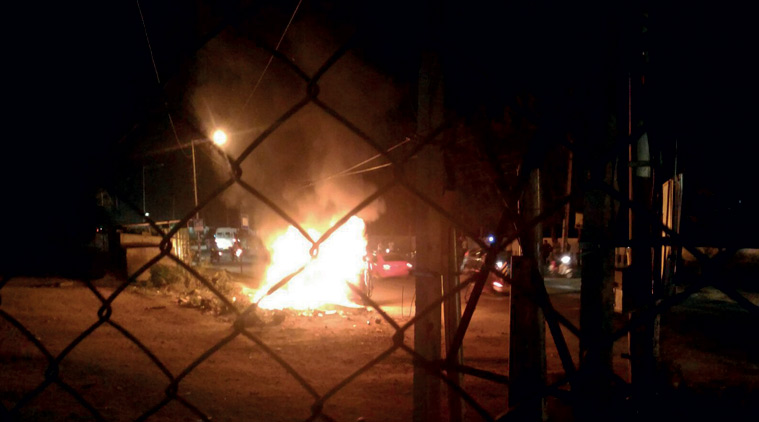Opinion Off colour
It is time for India to confront an embedded racism, and to hold the police responsible if they are unresponsive.

 The Tanzanian student alleged that she was stripped and forced to walk naked in public by a mob that went on a rampage and set fire to her car after a road accident.
The Tanzanian student alleged that she was stripped and forced to walk naked in public by a mob that went on a rampage and set fire to her car after a road accident.
India’s racism is an open secret, but it is nevertheless shocking to find it at the very heart of digital India. By all accounts, the shameful mob attack on a Tanzanian student, who was apparently beaten and stripped on the outskirts of Bangalore, was provoked by the colour of her skin. She had the misfortune of being in the area where a Sudanese man had caused a fatal traffic accident earlier. The two were not even of the same nationality, and all they had in common was origins in Africa. The incident invites comparisons with the midnight vigilante raid in Delhi’s Khirki village led by AAP Minister Somnath Bharti against Ugandan and Nigerian women who were accused of prostitution and pushing drugs. They, too, were humiliated like the Tanzanian student in Bangalore.
Among Indian citizens, people from the Northeast have borne the brunt of the majority’s violent dislike for people who do not look like them, eat like them or behave exactly like them, and come from a place that seems remote. The persecution of young people from the Northeast in the capital, who constitute a tiny minority, had become so routine that the sheer enormity of the outrage made up for the lack of numbers. Bangalore, it may be recalled, was also the epicentre of the 2012 panic wave in which tens of thousands of migrant workers from the Northeast fled the city, terrorised by a concerted hate campaign using SMS and social media. Now, as people from African nations come in search of education and opportunity, colour opens up fresh vistas of difference. The problem can only escalate as India positions itself as an investment destination — the very forces which attract capital also draw people. On the other hand, when people feel unsafe, capital flees. Sunday’s incident could prove to be a setback for Karnataka Chief Minister Siddaramaiah, whose government hopes to see commitments of Rs 1.3 lakh crore from a global investors’ meet in Bangalore this week.
But opposition to racism must not be merely practically constructed. Such discrimination is ethically proscribed in a nation that is natively many-hued and is constitutionally committed to multiculturalism. Governments in Bangalore and Delhi have responded to the incident and arrests have been made. The tardiness of the police and their reluctance to protect the victim should be probed, but denial is only to be expected. A racist attack must not be allowed to settle comfortably into the identity of just another incident of road rage. A responsive police and legal apparatus are crucial for securing the rights of minorities, whether women, Dalits, citizens from the Northeast or visitors from Africa.



